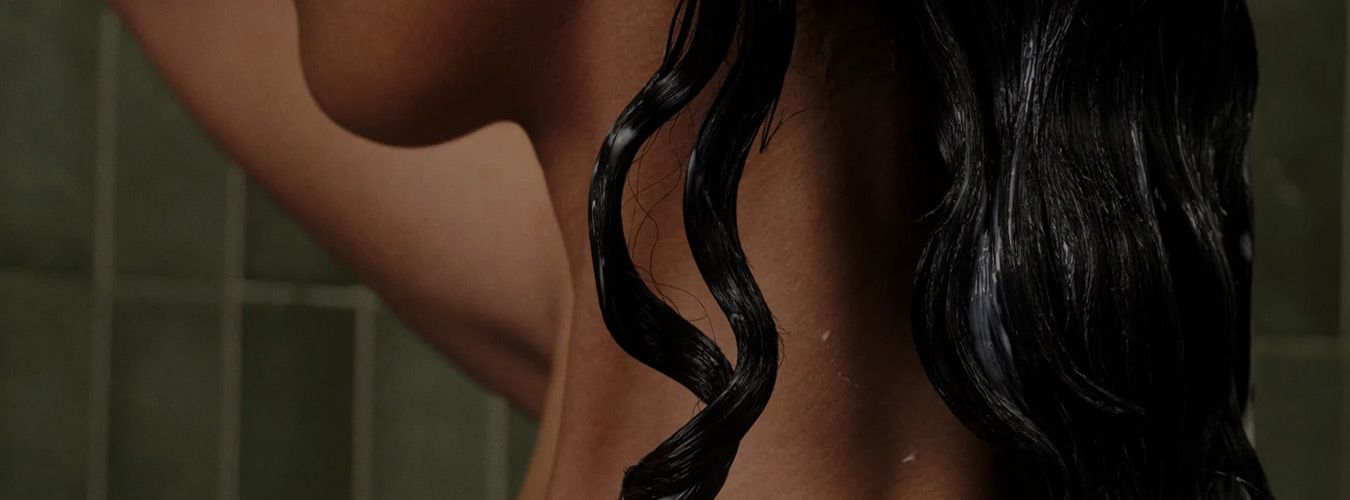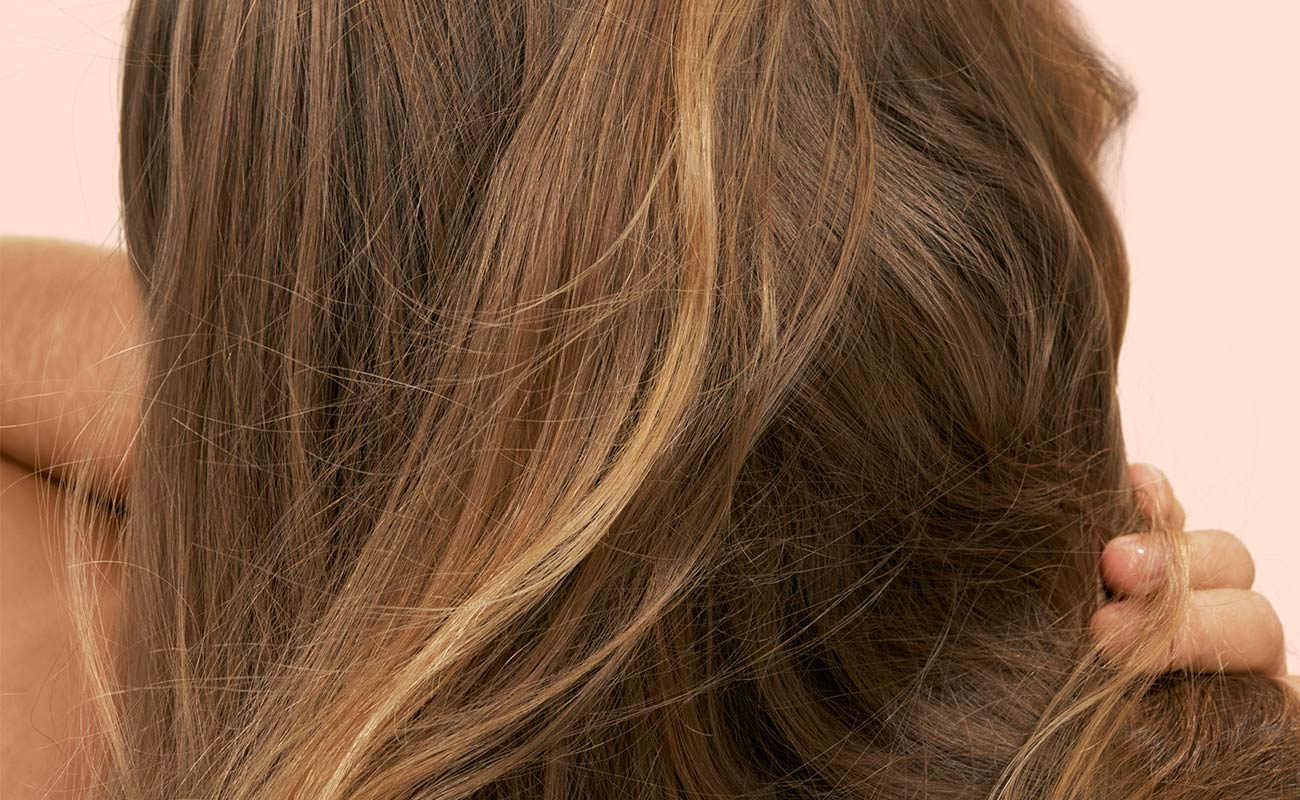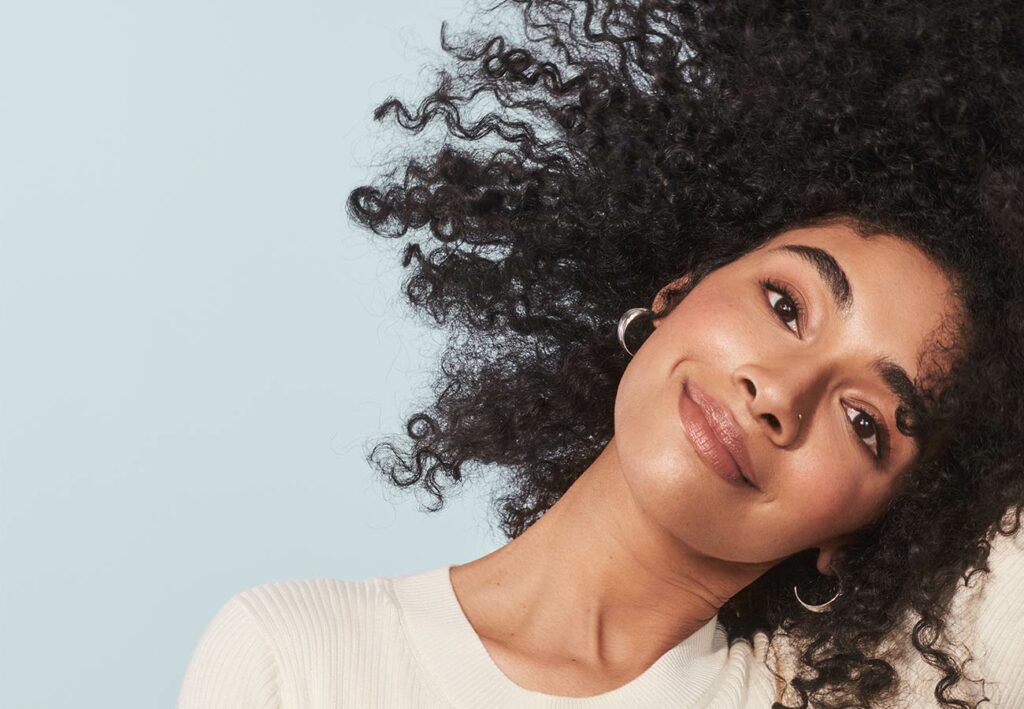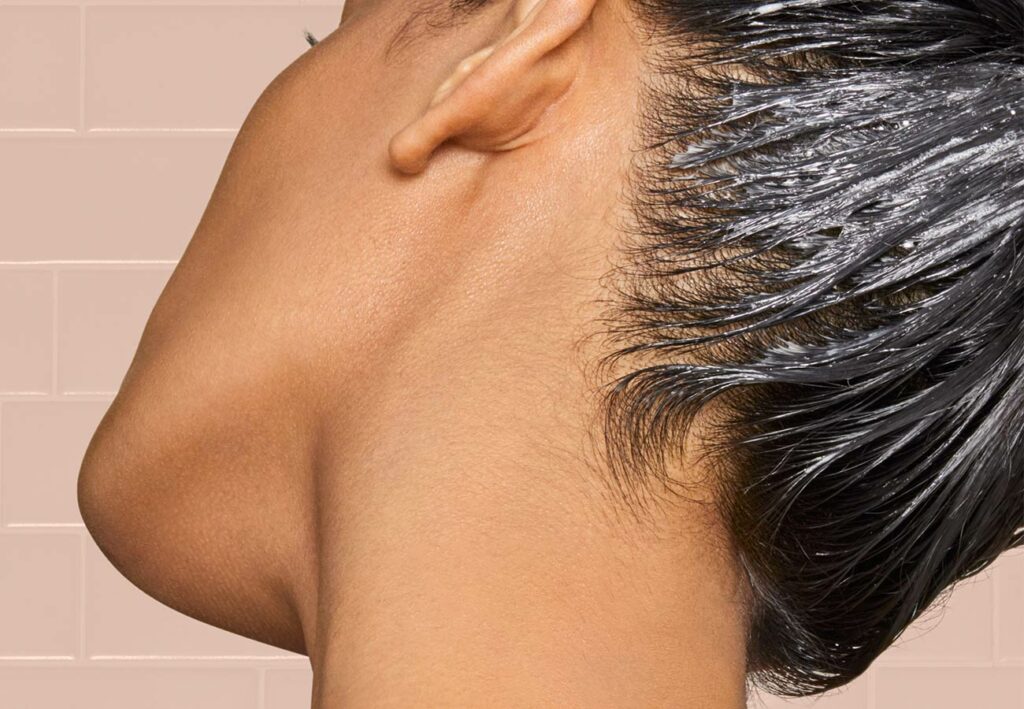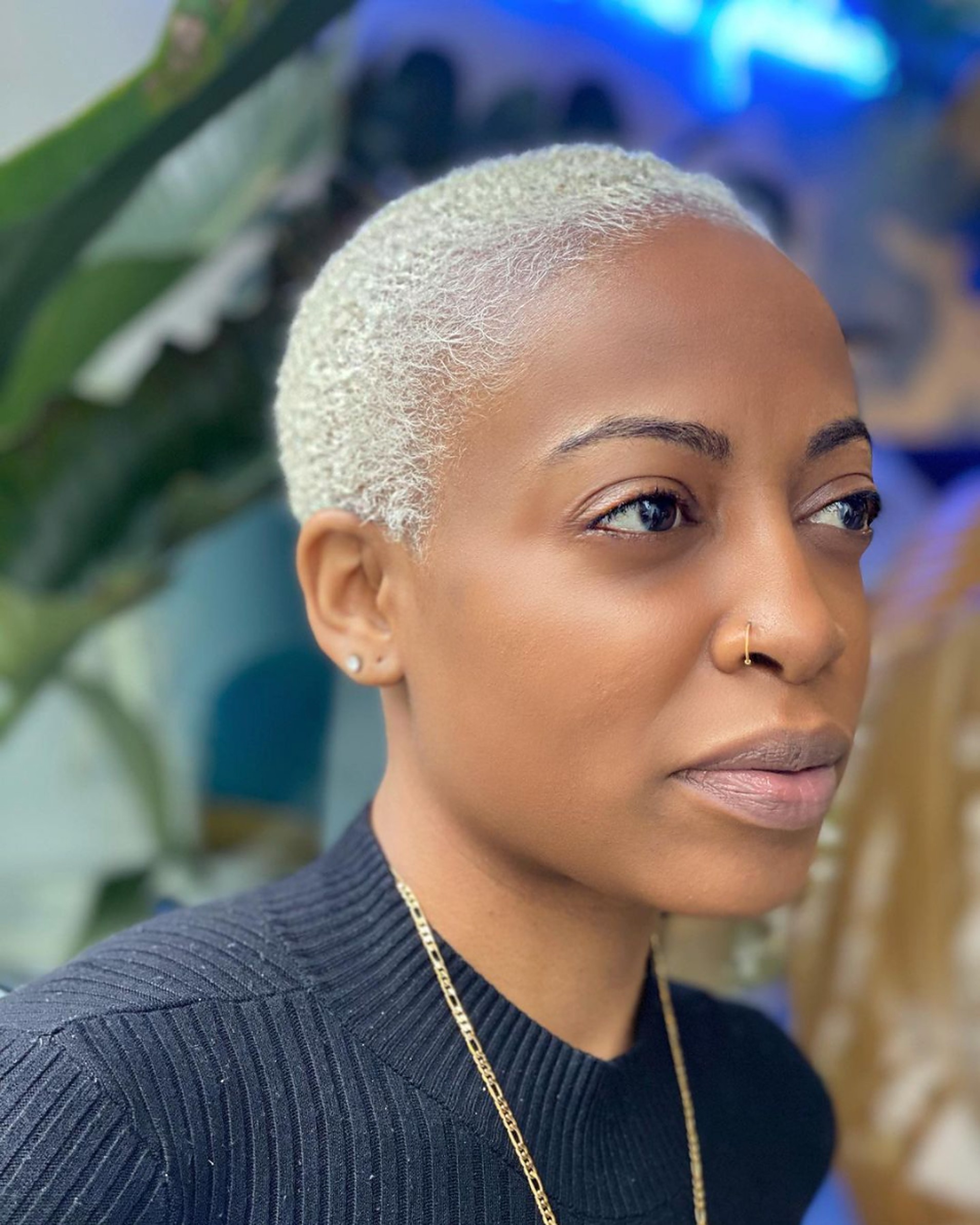What causes postpartum hair loss?
During pregnancy, higher estrogen levels cause the growth phase of the hair growth cycle to flourish and the resting (or shedding) phase to diminish. “Many women notice thicker hair from their second trimester on,” says Dr. Sekhon. “It’s not that the hair itself is thicker, but that we lose less hair in pregnancy and the growth phase is lengthened due to the effect of estrogen being produced from the placenta.”
When estrogen levels naturally decline after pregnancy, a large number of hair follicles go into the resting or shedding phase. Many women notice their hair thinning within a few months after having a baby.
“After resting for about two to three months, the hair will start to shed. This is why most women notice increased hair fall when their baby is a few months old.” shares Dr. Burg, explaining that this form of excessive (temporary) hair loss is technically referred to as telogen effluvium.
Telogen is also the name of the last phase of the hair cycle, which includes anagen (growth phase), catagen (transitional phase). Telogen is known as the resting phase of the cycle. Those with telogen effluvium, which can also be caused by stress, experience a slowdown of the anagen phase. In plain speak, this means less than the normal amount of hairs make it to the next two phases of the hair cycle—the ones vital to hair growth.
Linda’s hair growth journey with Root Source™ supplements
How long does postpartum hair loss last?
The American Academy of Dermatology (AAD) notes that most new moms see their hair return to its pre-baby fullness by their child’s first birthday. But hormones, stress, and poor nutrition can delay hair returning to its full glory. “How long postpartum shedding lasts depends on the person, their hormonal fluctuations, and their baseline hair thickness and rate of hair loss,” says Dr. Sekhon. “It could be prolonged for some women who have nutritional deficiencies and if their hair just takes longer than average to grow back.”
Many wonder if breastfeeding worsens postpartum hair loss. Dr. Sekhon says as long as you eat a healthy diet and take prenatal vitamins or a multivitamin, breastfeeding generally doesn’t impact hair loss.
“The body will tend to look after the baby’s needs before its own, so the nutrient deficiency will impact the mother before the baby [when it comes to breastfeeding],” adds Dr. Burg, echoing Dr. Sekhon’s statement about following a nutrient-rich diet, complete with proper vitamins. “A decline in hair health is often the first sign of a nutrient deficiency, and a lack of nutrients can also compound and extend any postpartum telogen effluvium.”
Does hair grow back after postpartum hair loss?
For the most part, postpartum hair loss is almost always fully reversible—though some may notice their hair isn’t exactly how it once was, pre-baby.
“They may notice that their hair does not grow back as well as it did before the baby, with thinning or sparser hair,” says Dr. Burg, adding that treating this hair loss can include incorporating more hair healthy vitamins (more on that below) and a well-rounded diet.
It’s also important to go easy on your hair. This means taking a break from excessive styling, hot tools, and harsh shampoos and conditioners. While these tips may not encourage hair growth, they are vital to keeping the hair healthy and more likely to stay in place.
Can something be done to prevent hair loss?
Hair loss is complex, to put it simply. While some types of hair loss can be prevented or managed, it all depends on the individual and their genetic history, as well as lifestyle and environmental factors. At the end of the day, postpartum hair loss inevitably manifests due to the hormonal changes that come with pregnancy. There are things that can be implemented to help combat this hair loss, however.
“The impact can be minimized by ensuring you eat a balanced diet and take supplements containing the right types of vitamins and minerals,” says Dr. Burg. “Also, aim to minimize stress by exercising, meditating or by practicing mindfulness techniques. It can be tough with a new baby, but make sure you take time for you.”
Regulating stress levels is imperative to treating postpartum hair loss as high stress levels can negatively impact hair regeneration.
How can I support healthy hair postpartum?
Firstly, Dr. Sekhon and Dr. Burg recommend biotin and a vitamin B complex to boost hair and nail health postpartum. That’s why Prose Root Source™ custom hair supplements use concentrated brewer’s yeast, a complex of eight B vitamins, including biotin. Unlike other hair supplements and block hormones, Root Source™ supports hair growth with a proprietary blend of clinically-tested millet seed extract, wheat, and coriander to stimulate hair growth at the bulb of the follicle, while thickening collagen to anchor and secure the hair*.
A healthy lifestyle and good self-care are always supportive of a well-oiled hair growth cycle. Dr. Sekhon recommends new moms take a multivitamin, stay hydrated, get adequate sleep, and avoid cigarette smoking to help get their hair back on track. Other doctor tips from the AAD include adjusting your hair care routine: Use products customized and tailored to your hair type, as many drugstore options use heavy ingredients that can coat the hair and weigh it down. Another tip is to apply conditioner only on the mid-shaft and ends of your hair so your crown retains more volume. Although postpartum hair loss is totally natural, if your hair doesn’t return to normal after one year, you may want to see a board-certified dermatologist.
*These statements have not been evaluated by the food and drug administration. This product is not intended to diagnose, treat, cure, or prevent any disease.
Always made to order. Never made to waste.
Exclusive Trial Offer Get 60% Off + Free Gift
